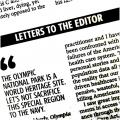
UP UNTIL January 31, the news and politics were dominated by Brexit. Since then, they have been dominated by coronavirus and for most people, Brexit has ceased to be an issue.
But not for much longer.
Brexit has, of course, impinged on the coronavirus crisis.
The Government’s refusal to take part in the EU procurement process seriously affected the supply of PPE.
And, more seriously, the decision by the Prime Minister to take another two-week holiday after “Brexit was done” contributed to the delay in Government decision making.
Over the next few weeks, Brexit will become more of an issue as the Government plans the relaxation of the lockdown and a gradual economic recovery.
By June 30 it has to decide whether to seek an extension to the transition period.
However, it has said that it does not intend to, as it is confident that a deal with the EU can be reached. But a failure to do so would mean that the UK would have a no- deal Brexit.
Prior to the pandemic, the Government seemed to take great pride in denigrating the advice of experts about the effect of Brexit. But now it insists that it is only acting on expert scientific advice.
What is going to be their attitude towards the near unanimous view of experts that the effect of a poor deal or a no-deal Brexit in the present situation is so serious that it cannot be risked?
The IMF has calculated that a no-deal Brexit would result in a permanent five per cent drop in GDP and this would be on top of the drop resulting from the pandemic.
The world is now very different from what it was on January 31.
Then Brexit enthusiasts promoted the belief that a Britain unshackled by the EU would thrive in a globalised economy, free to optimise its trade and seize economic opportunities across the world.
But now there is only great uncertainty and there is a high risk of a worldwide depression.
What then are the prospects for trade agreements?
What reliance can there be on the US whose economy will be the most seriously affected?
The only certainty is that established trade agreements will provide more security and greater prospect of economic recovery.
A responsible Government would cease its “socially distanced” negotiations with the EU and the US, ask for the extension that is on offer and work with its European partners to achieve an economic recovery.
Negotiations of the terms of the final Brexit can then be deferred till 2022 when the shape of the post pandemic world will be known.
This is a policy that Liberal Democrats would find safer than the risk of plunging into a no-deal Brexit and I believe it is one that many people who voted for Brexit would now feel more comfortable with.
Neville Pressley
Deputy chairman
Shoreham and Southwick Liberal Democrats
Church Street
Shoreham



Comments: Our rules
We want our comments to be a lively and valuable part of our community - a place where readers can debate and engage with the most important local issues. The ability to comment on our stories is a privilege, not a right, however, and that privilege may be withdrawn if it is abused or misused.
Please report any comments that break our rules.
Read the rules hereLast Updated:
Report this comment Cancel